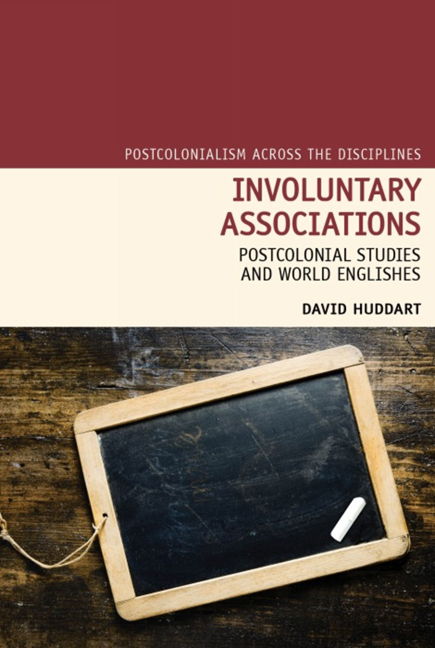Book contents
- Frontmatter
- Dedication
- Acknowledgements
- Contents
- Introduction
- 1 Involuntary Associations: ‘Postcolonial Studies’ and ‘World Englishes’
- 2 Grammars of Living Break their Tense: World Englishes and Cultural Translation
- 3 English in the Conversation of Mankind: World Englishes and Global Citizenship
- 4 Declarations of Linguistic Independence: The Postcolonial Dictionary
- 5 Writing after the End of Empire: Composition, Community, and Creativity
- 6 Slow Reading: The Opacity of World Literatures
- Conclusion: English Remains, Englishes Remain
- Bibliography
- Index
4 - Declarations of Linguistic Independence: The Postcolonial Dictionary
- Frontmatter
- Dedication
- Acknowledgements
- Contents
- Introduction
- 1 Involuntary Associations: ‘Postcolonial Studies’ and ‘World Englishes’
- 2 Grammars of Living Break their Tense: World Englishes and Cultural Translation
- 3 English in the Conversation of Mankind: World Englishes and Global Citizenship
- 4 Declarations of Linguistic Independence: The Postcolonial Dictionary
- 5 Writing after the End of Empire: Composition, Community, and Creativity
- 6 Slow Reading: The Opacity of World Literatures
- Conclusion: English Remains, Englishes Remain
- Bibliography
- Index
Summary
When in the course of human events, it becomes necessary for a people to improvise new words to catch and crystallize the realities of a new land; to give birth to a vocabulary endowed with its creators’ irrepressible shapes, textures, and flavors; to tell tales taller and funnier than anyone else ever had thought to before; to establish a body of literature in a national grain; and to harmonize a raucous chorus of immigrant voices and regional lingoes – then this truth becomes self-evident, that a nation possesses the unalienable right to declare its linguistic independence and to spend its life and liberty in the pursuit of a voice to sing of itself in its own words.
Richard Lederer, ‘A Declaration of Linguistic Independence’Introduction
Crack open the pages of The Coxford Singlish Dictionary (2002) or browse the rather different pages of TalkingCock.com, specifically its dictionary section, and you enter a world of proudly if (to non-Singaporeans) frequently opaque cultural identity and satire. Arguably, these two sources amount to one dictionary, available in print but more accessible online, and standing as an amalgamation of satirical comment on Singaporean society and a source of linguistic data. There you can learn the proper pronunciation of the world's premier fast food restaurant (‘Macnoner’ or ‘Mehnoner’), the nature of the advice, ‘Don'ch play-play’ (a warning against hubris, derived from Hokkien), or perhaps just remind yourself of the meaning of ‘kiasu’. Of course, this is ‘Singapore's premier satirical humour website!’, and, as a colleague suggested to me, it is accordingly ‘for fun’, and perhaps should not be taken too seriously. Indeed, before you click through to the main site, you are encouraged to note the following: ‘1. WE MAKE STUFF UP … 2. WE ARE NOT A POLITICAL SITE … 3. WE USE SOME STRONG LANGUAGE … 4. IF YOU DON't BELIEVE IN FREE EXPRESSION OR OPINION, GO SOMEWHERE ELSE’. The warning not to be too serious serves its own function, and numbers 1 and 4 tend to undermine number 2; it all rather depends on how you define ‘political’. In addition, as has been widely argued, one of the key components of ownership of a language, particularly perhaps in the context of World Englishes, is the capacity precisely to take it unseriously, to be playful, in short to be ludic in its use (see Y. Kachru 2006).
- Type
- Chapter
- Information
- Involuntary AssociationsPostcolonial Studies and World Englishes, pp. 75 - 93Publisher: Liverpool University PressPrint publication year: 2014



